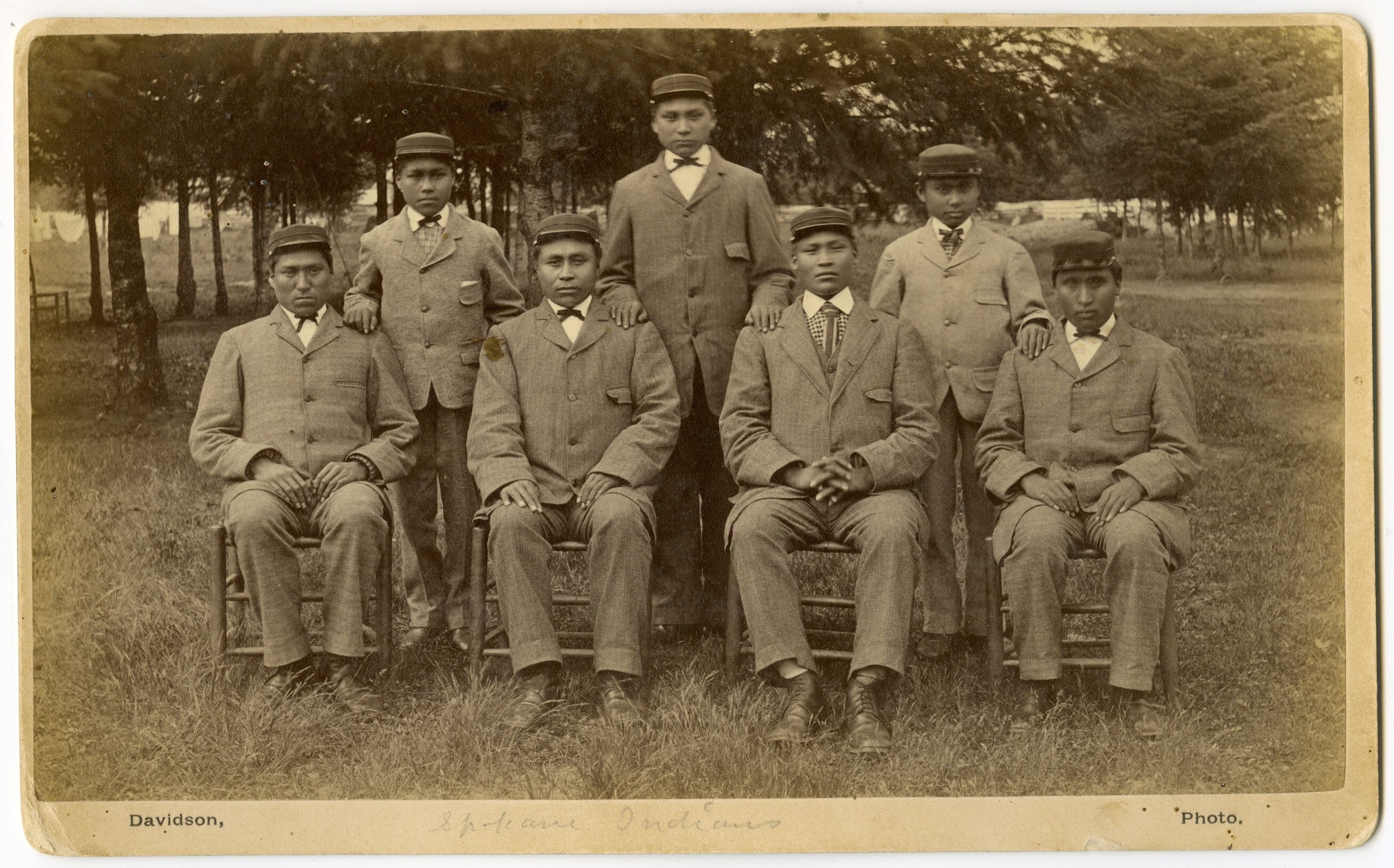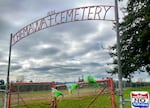
This historical photo, provided to Oregon Public Broadcasting by Pacific University archivist Eva Guggemos, shows seven boys who came to the Forest Grove Indian Training School from the Spokane tribe in 1880. The Forest Grove school operated for a few years before being relocated to Salem and renamed Chemawa Indian School.
Courtesy of Pacific University.
The U.S. Department of the Interior has announced the launch of an oral history project, that for the first time, will document stories of generations of Indigenous children who were taken from their homes and families and forced to attend federal boarding schools.
The $3.7 million federal program aims to create a permanent history collection of boarding school survivors’ stories.
Boarding schools in the Northwest included Fort Simcoe school in Yakima and the Colville Mission School in Kettle Falls. According to a map created by the National Native American Boarding School Healing Coalition, government and church organizations ran at least 29 Indian boarding schools in Oregon and Washington, dating back to the 19th century. One of four federal boarding schools still running is in Oregon: the Chemawa Indian School in Salem. While Chemawa’s mission has changed toward supporting Native culture, the school has had problems protecting the welfare of children and providing adequate financial oversight.
Emily Washines is a member of the Yakama Nation, a podcaster and works on Indigenous histories.
“This is such a painful part of our history, that even our own families haven’t been able to fully process, even after all these decades,” Washines said. “And we still have unanswered questions.”

The gate to the Chemawa Cemetery is locked and adorned with flowers on March 22, 2022.
Rob Manning / OPB
This new project — the first of its kind to be undertaken by the federal government — is part of the Federal Indian Boarding School Initiative launched by Secretary of the Interior Deb Haaland. It will mean that stories and experiences survivors share can be heard by, and learned from future generations.
“Creating a permanent oral history collection about the federal Indian boarding school system is part of the Department’s mission to honor its political, trust and legal responsibilities, and commitments to Tribes,” said Secretary Haaland, in a press release. “The U.S. government has never before collected the experiences of boarding school survivors, which Tribes have long advocated for to memorialize the experiences of their citizens who attended federal boarding schools. This is a significant step in our efforts to help communities heal and to tell the full story of America.”
This yearlong project intends to focus on gathering first-person survivor narratives and establishing an oral history collection. Survivors will have the opportunity to make their interviews available to federal partners, Tribal governments, policymakers and researchers, and the public.
Among its goals, the project seeks to help survivors and communities heal from being forcibly removed from their families and assimilated to Western culture.
“They were basically trying to make our kids somebody else,” Washines, of the Yakama Nation, said. “There are still a lot of unanswered questions regarding this era from our history both from Native families and non-Natives. We’re still trying to get the whole story, what happened?”
NOTE: OPB’s Rob Manning contributed to this report.

Girls’ dormitory at Fort Simcoe under federal Indian Agency, Yakama Reservation.
Courtesy of Yakima Valley Museum.


